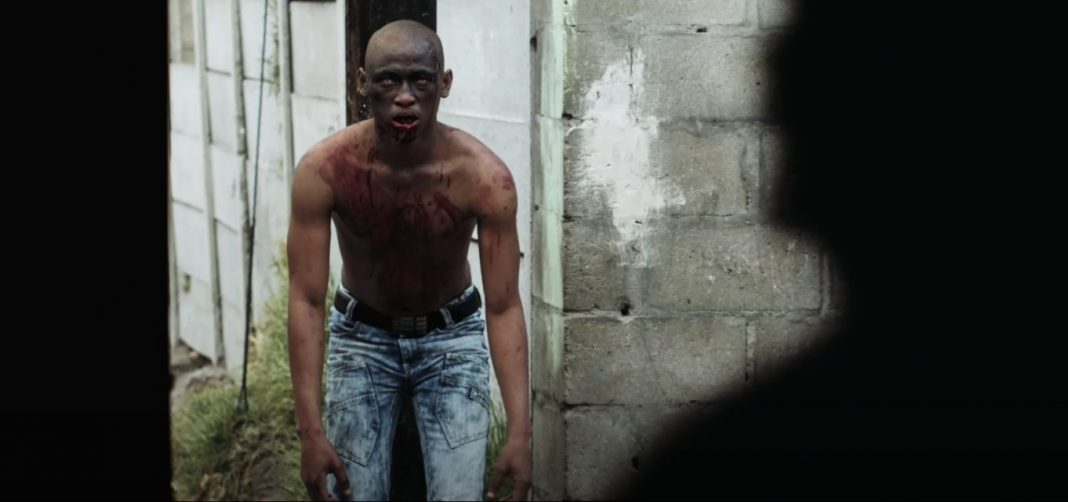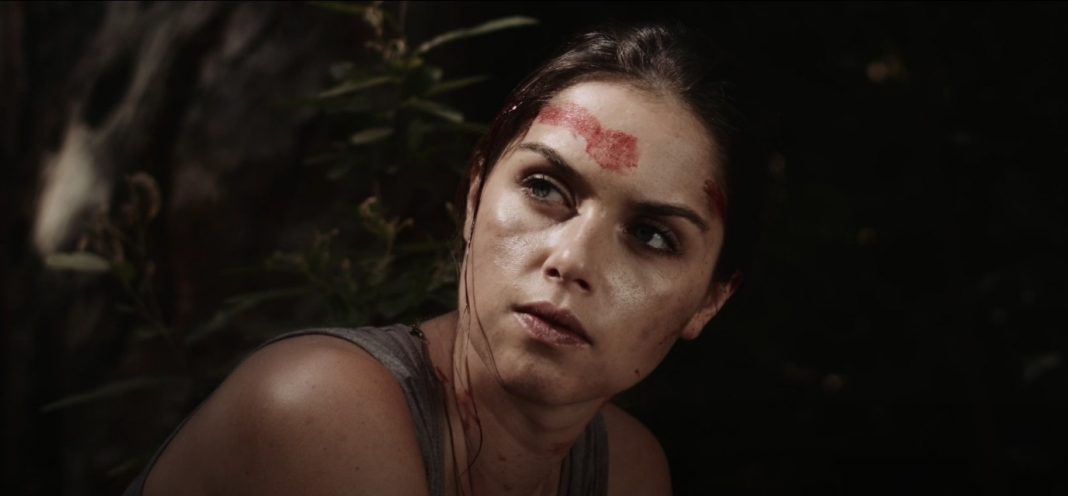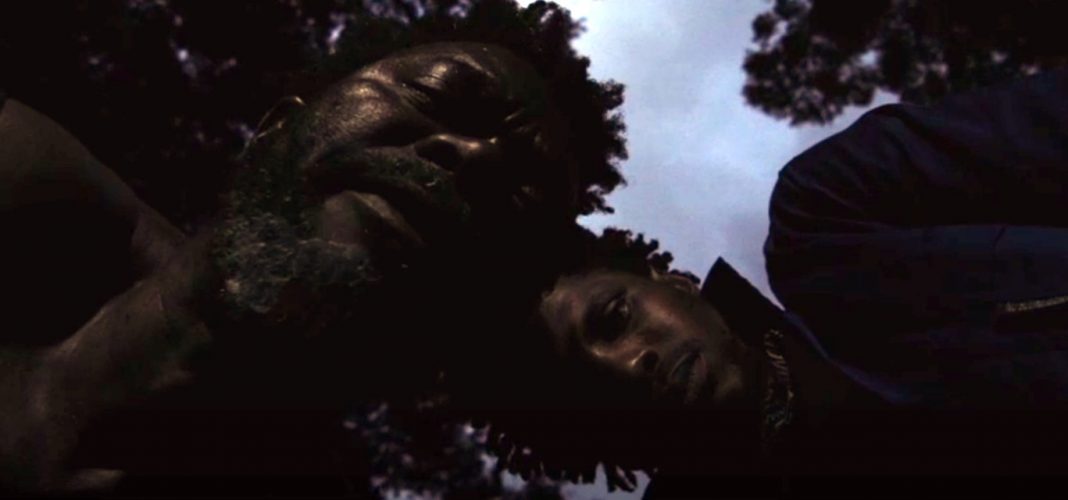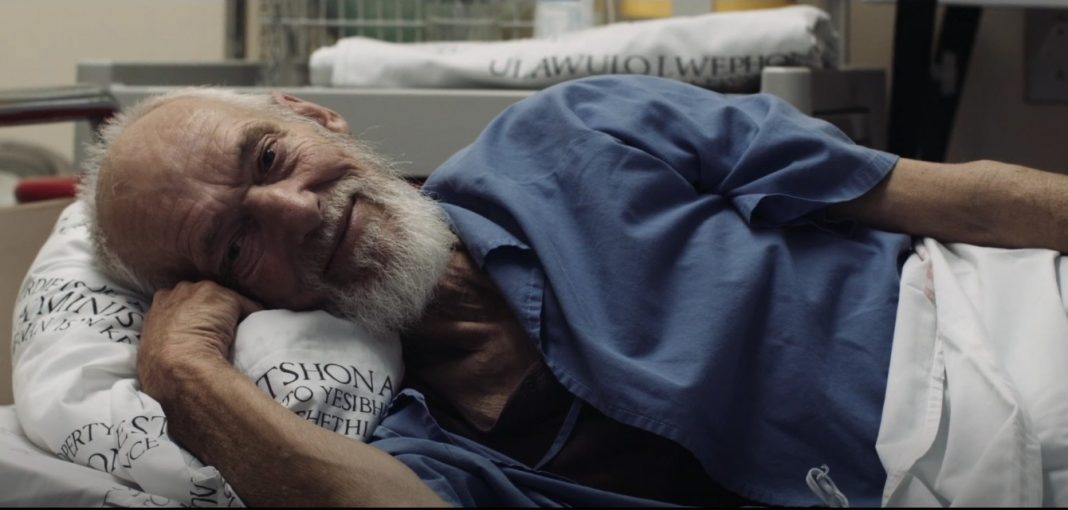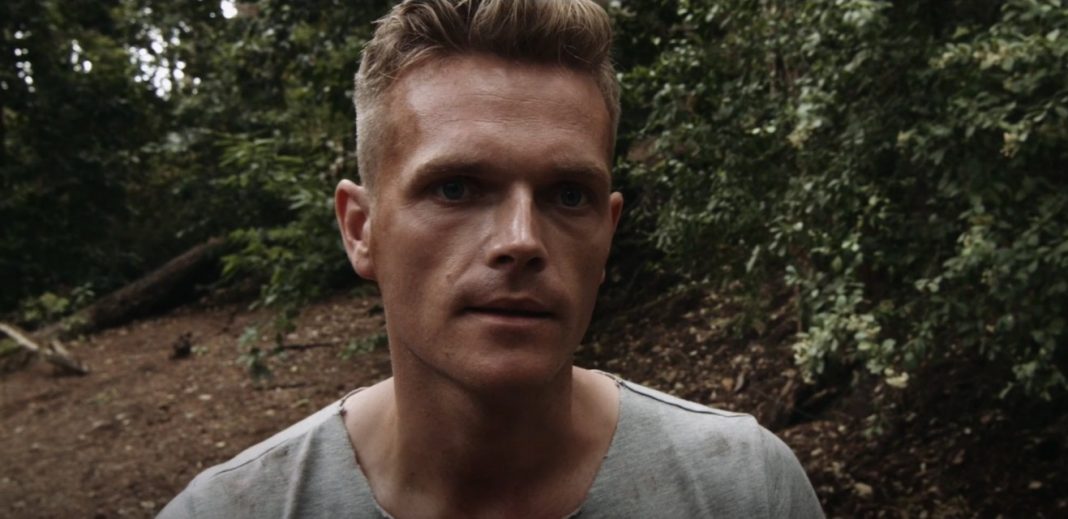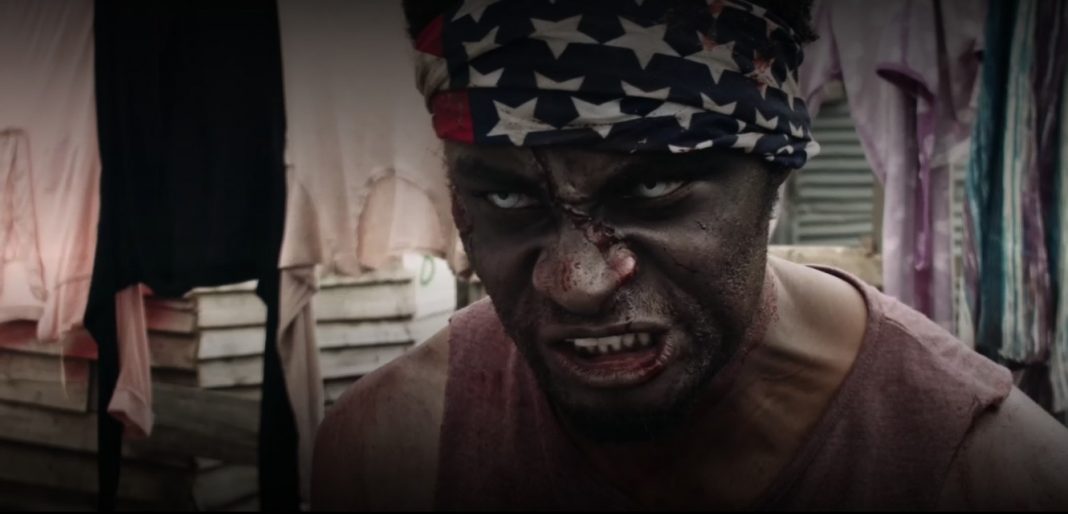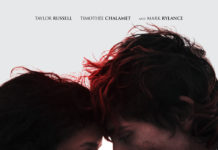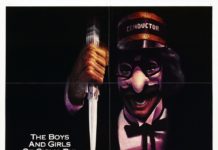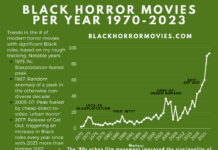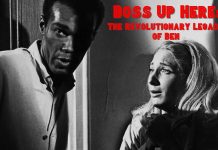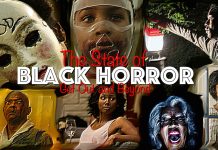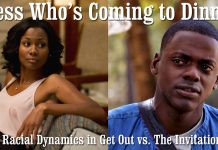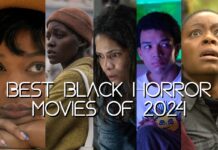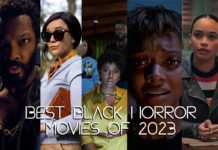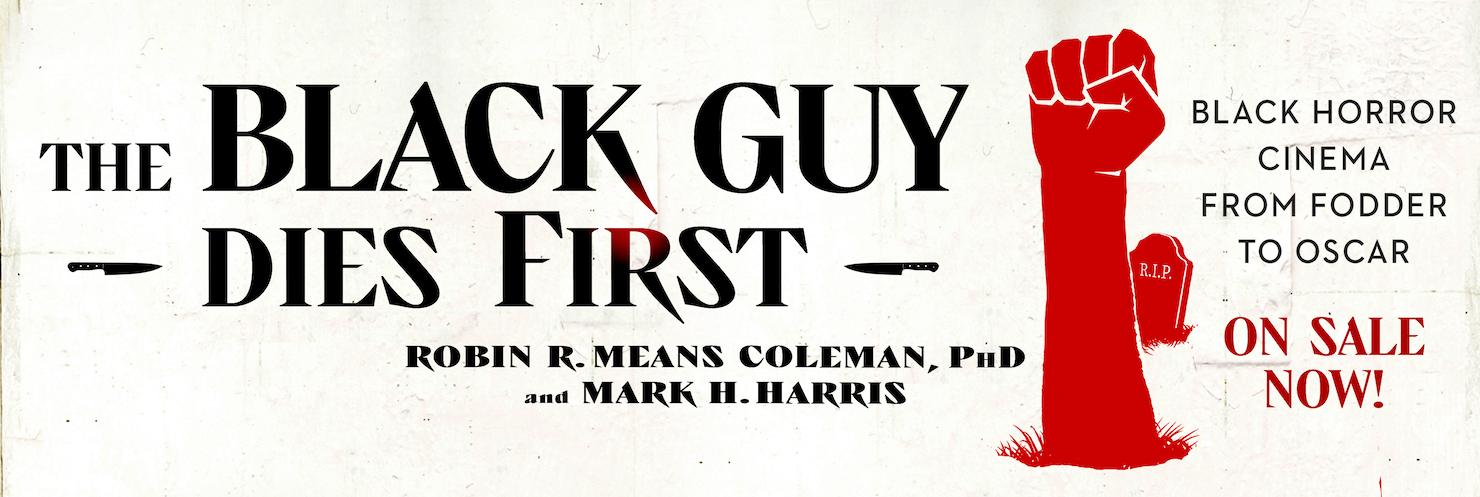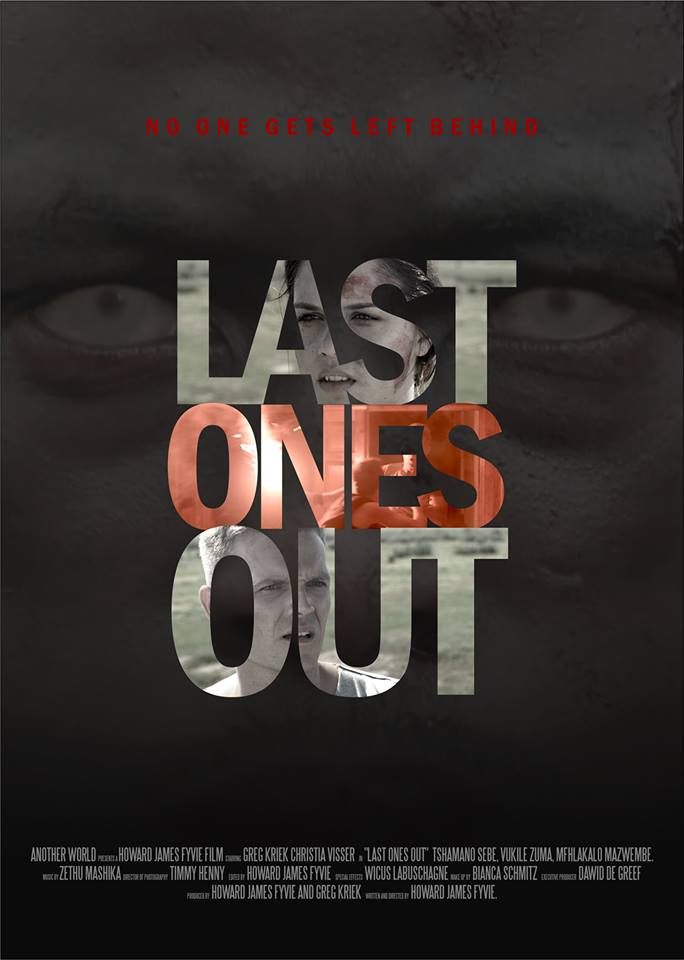Africa in horror movies is like Cleveland in real life: nothing good comes from going there. Its sole purpose, it seems, is to serve as home to ravenous animals and menacing supernatural entities, along with the hapless natives who fall prey to them so the white protagonists don’t have to. Last Ones Out continues a long tradition of “shit going down in Africa” films centered around a white outsider rather the 99% black African population that takes the brunt of the damage from said shit.
In this instance, it’s a zombie outbreak — granted, it’s debatable if the infected are actually dead; they seem to be more in the 28 Days Later “rage” mold. The setting is “Southern Africa” in 2015, when an unknown virus triggers “animal-like behavior” and “increased aggression” throughout the land. It’s not a big leap to draw comparisons between what’s happening on screen to the West African Ebola outbreak of 2013-16, a parallel that, in the hands of a better movie, might not feel so exploitive (especially considering the film itself was finished in the midst of the outbreak, in 2015).
When things start to head south, white American Henry (Greg Kriek) is in a rural hospital impatiently awaiting an appendectomy. When told by black hospital worker Siseko (Tshamano Sebe) that there’s only one doctor on duty, he replies, “What the hell’s going on with YOU PEOPLE?!?” Ever the charmer, Henry then openly ogles white African doctor-in-training Sunet (Christia Visser), despite the fact that he’s in Africa to visit his girlfriend. At this point, I just KNEW this casually racist, unfaithful Ugly American couldn’t be the leading man in the film, so I eagerly waited for the moment when zombies would burst in and rip him to shreds. I waited…and waited…and waited…and — oh, fuck me.
Yup, it turns out douchebag Henry is our “hero.” And as the movie progresses, he somehow manages to prove himself to be even more miserable of a human being that we already thought. You see, even though Sunet, Siseko and Siseko’s nephew Vincent (Vukile Zuma) save Henry’s life on at least two occasions, he lies to them by claiming he knows of a convoy in a nearby town that can save them all. In truth, his girlfriend had told him on the phone that there was room for ONLY HIM, but he has no qualms about convincing the others to guide him there even though Siseko would prefer to go to another town to rescue his son. Nice one, Henry.
Oh, and on the way, Henry’s prejudice kicks into high gear when he asks Sunet if she has a boyfriend, adding “It must be pretty tough [because] the only white guy I saw is, like, 79 years old.” The implication, of course, is that there’s no chance she would date a black African. To top it off, when the others discover his lies, Henry attempts to take Vincent hostage at knifepoint in order to force him to take him to the convoy. Remind me again why we’re supposed to be rooting for him?
*SPOILER ALERT FROM HERE ON*
It’s only when Siseko dies that we’re to believe Henry has a Grinch-like change of heart. All of a sudden, he couldn’t care less about being rescued; he spurns the convoy in favor of traipsing off to rescue Siseko’s son, Ayanda (Mfihlakalo Mazwembe). Thus, he becomes the “white savior” that is typical of this sort of American-in-the-Third-World horror flick, but in a bit of a twist, because he’s been such an asshole throughout, Henry must earn redemption by sacrificing himself. Heroic deaths: they’re not just for black people anymore!
On the surface, the death of the white guy (and girl, because Sunet is so smitten by Henry’s selflessness that she decides to die with him — because God knows a dead white guy is a better romantic option that an alive black guy) to save the black folk (well, just Ayanda) is a welcome reversal of genre tropes, but it’s actually not a true reversal. A black character’s heroic death is almost always to benefit the white lead, but in Last Ones Out, the black survivor who benefits from the sacrifice is STILL NOT THE LEAD. The dead white characters are undeniably the main protagonists. Even in death, they outshine all of the black characters.
That said, from an execution standpoint, Last Ones Out is impressive considering it was supposedly made for 50,000 Rand (around $3,500). It has a nice, professional look, including some intimidating creature designs and makeup (granted, the budget seems to limit how many zombies appear in the film), plus solid performances all around from the cast. I give the script credit for thinking a bit outside the box with the jerk-ass hero and sacrificial climax, but it still falls into the trap of Anglocentricity, a convention that’s so ingrained, many filmmakers don’t think twice that they might be helping to normalize a sense of cinematic white supremacy.
